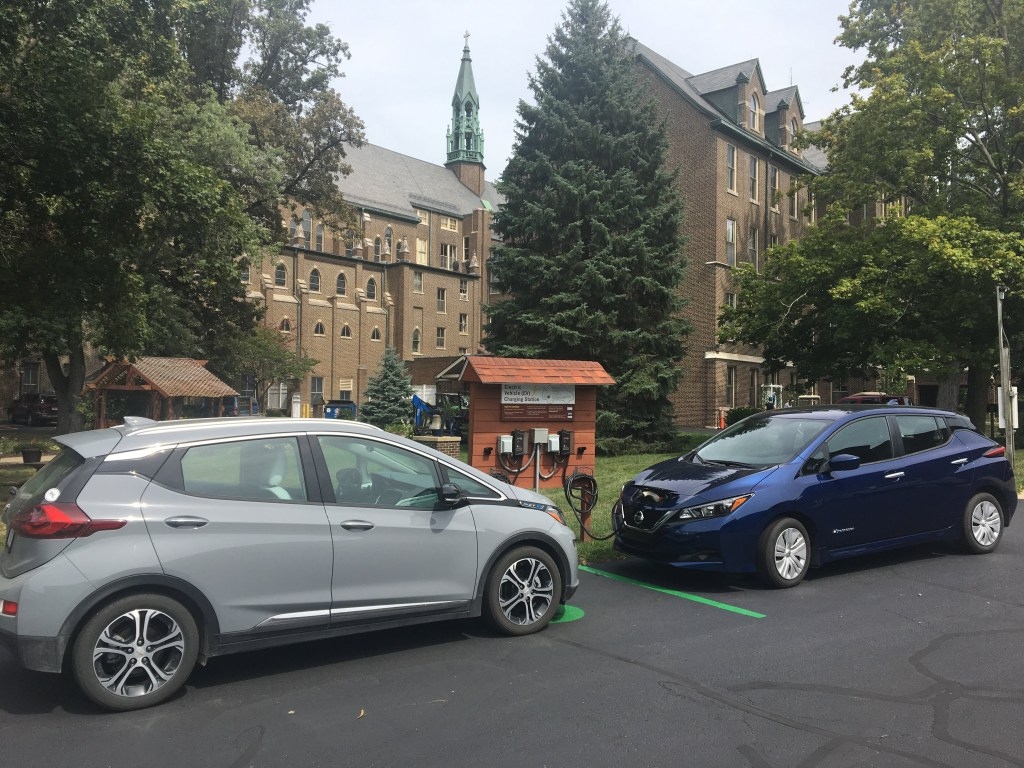Challenges
The Center has not been able to evaluate the savings from one of the hybrid plug-in electric vehicles due to its inability to display total electric miles driven vs. gas miles driven.
The Center noted that having an institutional champion was critical when faced with complaints about pitfalls. To ensure individuals understood the benefits of electric vehicles, the champion did not skip past basic questions from any staff or visitors who were less familiar with this new transportation option. Additionally, the Center tracked every trip for the first six months to educate and reduce anxiety about the ranges of the electric vehicles.
Director of Ecological Relationships Adam Thada said, “It was important to establish a human resources policy on the charging station from the outset to normalize and encourage the use of electric vehicles. At the Center, this manifested as a modest flat yearly fee for employees who want to charge on a regular basis to combat any perception that anyone was attempting to free ride off the institutional utilities.”



